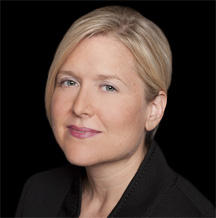November 15th, 2011 by RyanDuBosar in Research
No Comments »

Researchers found that while the vast majority of smokers want to stop, the vast majority who wanted to got little support from their health care providers. Not that they’d approached their provider, either.
68.8% of current cigarette smokers said they would like to completely stop smoking, and 52.4% had tried to quit smoking in the past year. However, 68.3% of the smokers who tried to quit did so without using evidence-based cessation counseling or medications, and only 48.3% of those who had visited a health-care provider in the past year reported receiving advice to quit smoking.
Little overall change has been observed in these measures in the past decade. However, Read more »
*This blog post was originally published at ACP Internist*
June 13th, 2011 by Dr. Val Jones in Announcements, Health Tips
No Comments »
 You probably see your primary care physician once a year, and your dentist twice a year. But how often do you see your eye doctor? Vision is the most valued of the 5 senses, and yet Americans don’t seem to be making regular eye exams a priority. A recent CDC survey suggests that as many as 34.6% of adults over the age of 40 (with moderate to severe visual impairment) believe that they don’t need regular eye exams. About 39.8% of the respondents said that they didn’t get regular exams because they were too costly, or because their health insurance didn’t cover the expense.
You probably see your primary care physician once a year, and your dentist twice a year. But how often do you see your eye doctor? Vision is the most valued of the 5 senses, and yet Americans don’t seem to be making regular eye exams a priority. A recent CDC survey suggests that as many as 34.6% of adults over the age of 40 (with moderate to severe visual impairment) believe that they don’t need regular eye exams. About 39.8% of the respondents said that they didn’t get regular exams because they were too costly, or because their health insurance didn’t cover the expense.
Although cost may play a role in peoples’ thinking, a comprehensive eye exam costs as little as $45-50 at retail outlets. I suspect that the real reason why people don’t get regular eye exams is because they incorrectly believe that if their vision is stable, their eyes are healthy.
A comprehensive eye exam is a type of medical check up – it is not just a vision assessment. Eye care professionals can diagnose everything from glaucoma and cataracts to high cholesterol, diabetes, high blood pressure, and even neurologic conditions such as brain tumors and multiple sclerosis. The eyes are more than a “window to the soul” but a window to general physical health. And the good news is that exams are relatively inexpensive and painless – so please consider making them part of your yearly health maintenance routine.
And to my primary care friends – don’t forget to encourage your patients to get annual eye exams. As the CDC notes:
Recommendations from primary-care providers can influence patients to receive eye-care services; persons who had visual screening during routine physical examinations had better eye health because of reminders to visit eye specialists. Public health interventions aimed at heightening awareness among both adults aged ≥65 years and health-care providers might increase utilization rates among persons with age-related eye diseases or chronic diseases that affect vision such as diabetes.
I myself have had an unexpected diagnosis during an eye exam, and feel passionate about the importance of preventive screening. In fact, I’ll be the upcoming host of a new eye health education initiative – a radio show called, “Healthy Vision with Dr. Val Jones” supported by ACUVUE brand contact lenses. The first show will be released here today, and it’s also available at Blog Talk Radio.
References:
Reasons for Not Seeking Eye Care Among Adults Aged ≥40 Years with Moderate-to-Severe Visual Impairment — 21 States, 2006–2009. Morbidity & Mortality Weekly Report, May 20, 2011. 60(19);610-613
Alexander RL Jr., Miller NA, Cotch MF, Janiszewski R. Factors that influence the receipt of eye care. Am J Health Behav 2008;32:547–56
Strahlman E, Ford D, Whelton P, Sommer A. Vision screening in a primary care setting. A missed opportunity? Arch Intern Med 1990;150:2159–64
Disclosure: Dr. Val Jones is a paid consultant for VISTAKON®, Division of Johnson & Johnson Vision Care, Inc.



 You probably see your primary care physician once a year, and your dentist twice a year. But how often do you see your eye doctor? Vision is the most valued of the 5 senses, and yet Americans don’t seem to be making regular eye exams a priority. A
You probably see your primary care physician once a year, and your dentist twice a year. But how often do you see your eye doctor? Vision is the most valued of the 5 senses, and yet Americans don’t seem to be making regular eye exams a priority. A 







